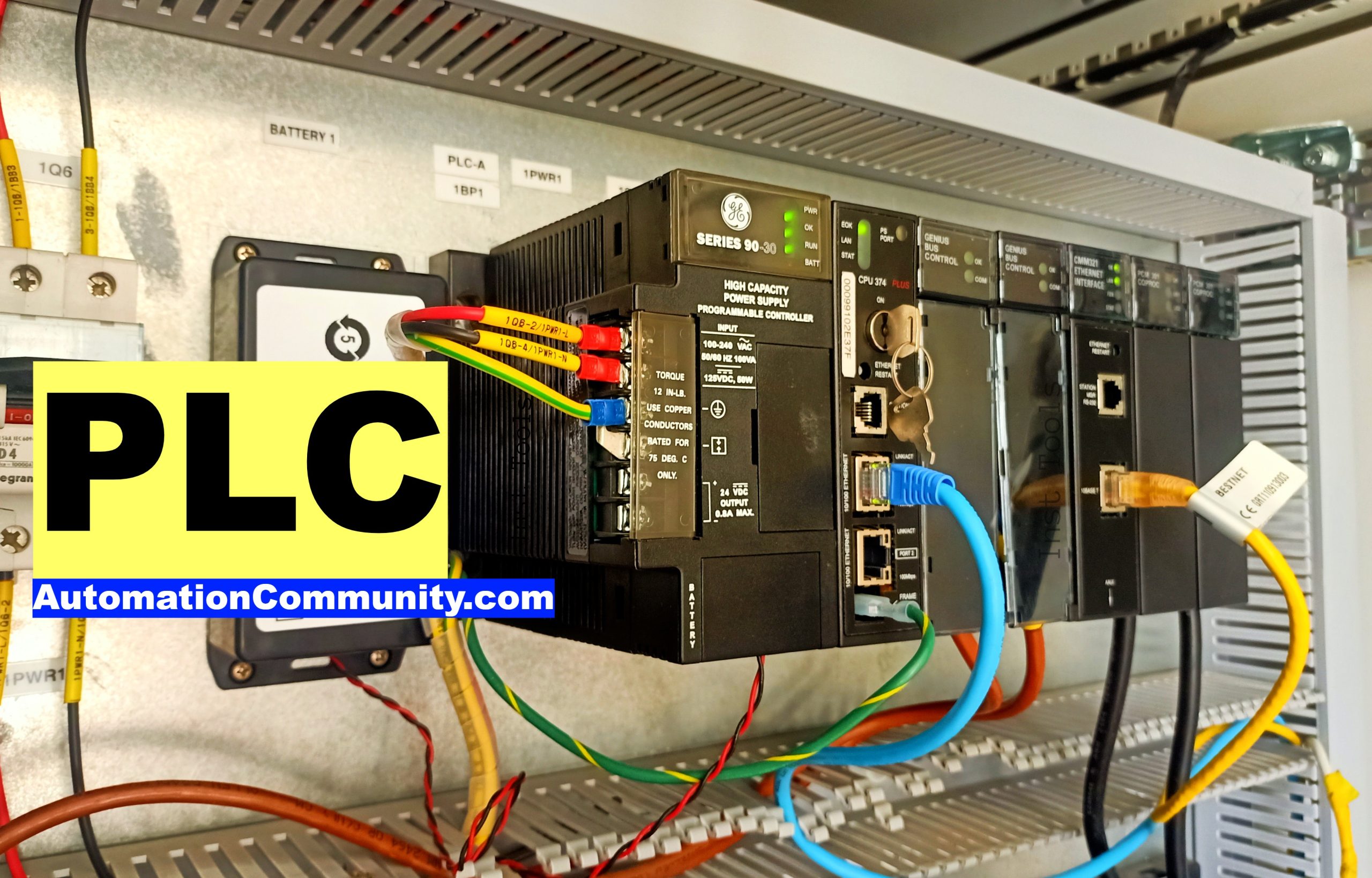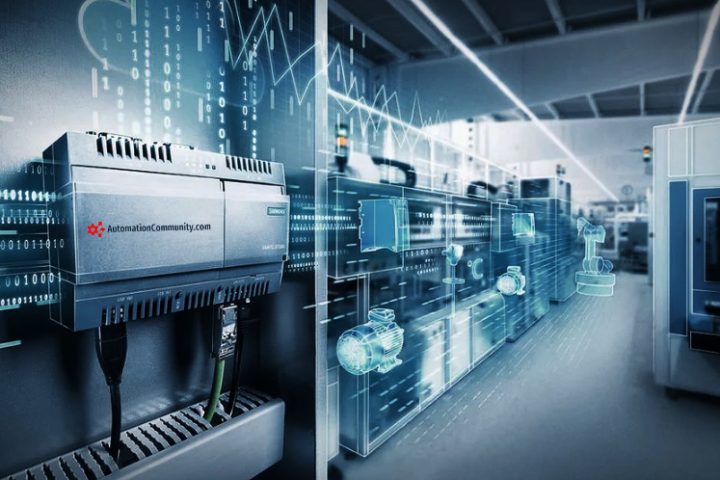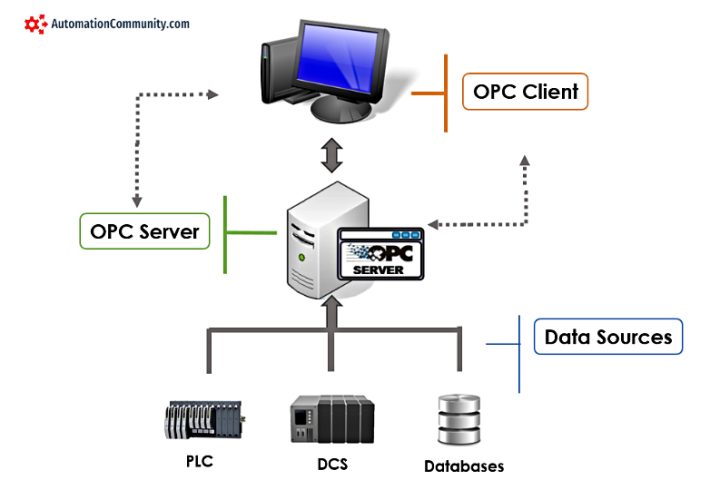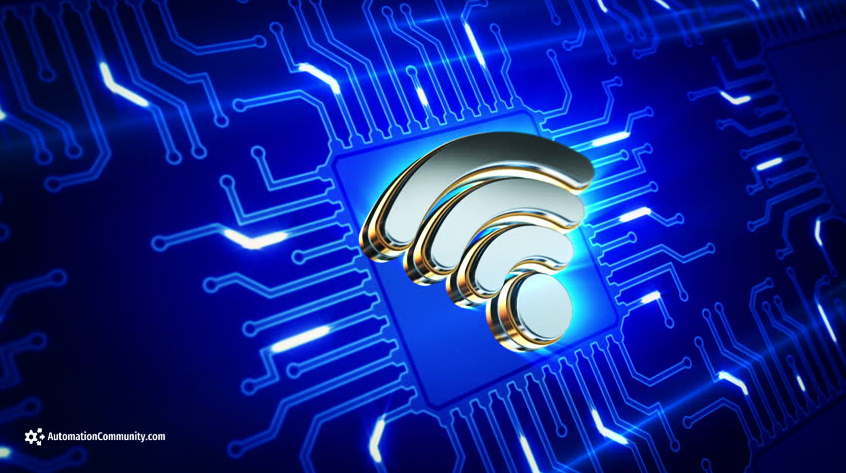Difference Between PLC and DCS Systems
In this article, you will learn the difference between PLC and DCS systems which are popular in industrial automation and control applications.
A programmable logic controller (PLC) is used to control electromechanical processes, such as those found in factories, power plants, and other types of manufacturing and production environments.
PLCs are programmed using a specialized programming language, and they can be programmed to perform a wide range of tasks, including controlling motors, relays, and other types of electrical and mechanical devices.

A distributed control system (DCS) is a type of industrial control system that uses a network of controllers to control and monitor a process or system. A DCS typically includes a central computer that is used to coordinate the activities of the network of controllers, which are distributed throughout the process or system.
Each DCS controller is responsible for controlling and monitoring a specific aspect of the process or system, and the controllers communicate with each other and the central computer to coordinate their activities.
There are several key differences between PLCs and DCS:
- Scale: PLCs are typically used to control a single process or system, while DCS is used to control larger, more complex processes or systems that may involve multiple plants or facilities.
- Architecture: PLCs have a centralized architecture, with a single controller (or with redundancy) that is used to control and monitor the process or system. DCS has a distributed architecture, with a network of controllers that are distributed throughout the process or system.
- Programming: The popular programming language for PLC is ladder logic, while DCS uses function block programming. Both PLC and DCS support different types of programming languages.
- Functionality: PLCs are typically used to control and monitor specific types of processes or systems, while DCS is more versatile and can be used to control and monitor a wider range of processes and systems.
- Cost: PLCs are generally less expensive than DCS, especially for smaller-scale applications. However, DCS may be more cost-effective for larger, more complex processes or systems.
Difference Between PLC and DCS Systems
Programmable Logic Controllers (PLCs) and Distributed Control Systems (DCS) are both used to control and automate industrial processes, but they have some key differences.
These differences can be summarized in the table below:
| PLC | DCS |
|---|---|
| A compact and modular control system that typically uses a central processing unit and input/output modules | A larger and more complex control system that uses multiple controllers distributed throughout the process |
| Used for control of smaller and less complex industrial processes, such as manufacturing lines or machine control | Used for control of larger and more complex industrial processes, such as power plants or oil and gas production |
| Has a limited number of I/O points and can handle a limited number of control loops | Can handle a large number of I/O points and control loops |
| Typically uses a ladder logic or functional block programming languages for programming | Can use various programming languages, such as function block, structured text, ladder logic, and sequential function chart. |
| Typically uses a simple and robust industrial communication protocol | Typically uses more complex and sophisticated communication protocols such as OPC-UA, MODBUS, PROFIBUS, etc. |
| Has limited data storage and data handling capabilities | Has advanced data storage and data handling capabilities |
| Often used for discrete control applications | Often used for continuous control applications |
| Has less redundant and backup capability | Has more redundant and backup capability |
In summary, PLCs are designed for simpler, smaller-scale industrial control applications, and are typically less expensive than DCS. On the other hand, DCS is designed for more complex, larger-scale industrial control applications and is typically more expensive than PLCs.
Both PLC and DCS have their own advantages, which one to choose depends on the specific requirements of the application, budget, and complexity of the process.
Read Next:















Comments
1
Your PDF are very helping us a lot . Thank you very much and keep on sending more